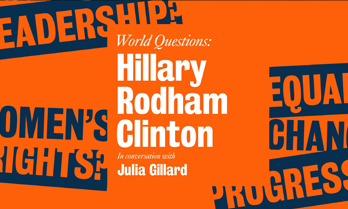Men less likely than women to need intelligence to get ahead, public say
Around 20,000 people across 28 countries were surveyed by the Global Institute for Women’s Leadership, Policy Institute and Ipsos for the study.
Globally, men (18%) are twice as likely as women (9%) to say that gender equality has already been achieved in their country.
Around the world, people are more likely to say intelligence is important for women to get ahead (28%) than for men (20%), and that never giving up is key (25% for women vs 16% for men).
Women (15%) are twice as likely as men (7%) to have their looks cited as a key factor in their success.
By contrast, personal networks are seen as more important for men’s success. Globally, 22% say being connected is key for men, compared with 13% who say the same for women. And 18% say political connections are particularly important for men, versus 8% for women.
Over a third of people in Russia (35%) say that women’s looks are important in helping them get ahead, the highest in the survey. By contrast, the global average is 15%.
People in China are most likely to think that women and men are already equal in their country, with 28% saying this, compared with an average of 13% globally.
Countries most likely to blame the government for not doing enough to promote gender equality include Turkey (32%), Brazil (29%) and Hungary, Peru, South Africa and Spain (all on 25%).
Men and boys not being educated about the importance of gender quality is the most-cited reason for inequality between women and men in Mexico (38%), Argentina (34%), Chile (34%) and Peru (39%).
 Hillary Rodham Clinton will be in conversation with Julia Gillard to discuss women’s leadership and gender equality on Wednesday 13 November for the inaugural event in King’s College London’s new World Questions series.
Hillary Rodham Clinton will be in conversation with Julia Gillard to discuss women’s leadership and gender equality on Wednesday 13 November for the inaugural event in King’s College London’s new World Questions series.
The event will also help mark the publication of The Book of Gutsy Women, by Secretary Clinton and her daughter, Chelsea, which tells the stories of inspirational women who have challenged the status quo. To request a press pass to cover the event, contact George Murkin.
Julia Gillard, former Prime Minister of Australia and Chair of the Global Institute for Women’s Leadership at King’s College London, said:
This research reinforces that people understand men are more likely to get ahead in life because of the old boys’ network, while women have to be significantly better and more intelligent to even get a foot in the door. Hillary Rodham Clinton is someone who knows a great deal about being more qualified, competent and hard-working than her male peers. I’m delighted to welcome her to King’s College London to launch the World Questions event series with a discussion about her experience as a leader and what needs to change so that more women can follow her lead.
Professor Rosie Campbell, Director of the Global Institute for Women’s Leadership at King’s College London, said:
Decades of research has shown that men have an easier route to the top than women, and it’s reassuring that the public now recognise this – but concrete action is needed if we’re to level the playing field. Our survey also reveals that people see employers as a key barrier to equality, and they’re right that the world of work is holding many women back. Expanding access to flexible working and unbiased recruitment processes would be good places to start.
Kelly Beaver, Managing Director of Public Affairs at Ipsos, said:
Our research shows that the adage ‘It’s not what you know but who you know’ still holds true – at least for men. For women to get ahead, it’s less about having connections and more about hard work, being intelligent, having the right qualifications and never giving up. That said, our research also shows that resilience alone will not enable women to achieve equality with men – they also need positive action and, in many countries, responsibility for this is seen to lie with employers. Our work also shows that representation matters – you cannot be what you cannot see. In line with this, over the next 25 years the three areas identified as being most important to achieve equality are representation of women in government and politics, women having senior positions in business and women reaching CEO/board positions.



